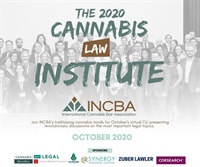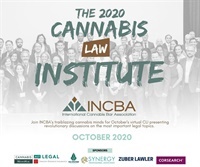Before you Buy: Check the Credit Tab to Make Sure Your Jurisdiction is Accredited!
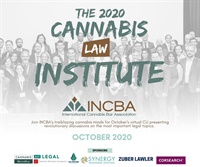
- Average Rating:
- 6
- Categories:
- Administrative Law | Hemp | Licensing and Permitting | Regulatory
- Faculty:
- Rod Kight | Frank Robison | Andrea Steel
- Duration:
- 1 Hour 15 Minutes
- Format:
- Audio and Video
- SKU:
- INCBA102020US
- License:
- Short Description:
- Learn from the experts to see where you should direct your clients to succeed in the US hemp market.
- Price:
- $30.00 - $75.00
- Average Rating:
- 6
- Categories:
- Administrative Law | Hemp | Licensing and Permitting | Regulatory
- Faculty:
- Shawn Hauser | Garrett Graff | Mitzi Vaughn | Tami Wahl
- Duration:
- 1 Hour 10 Minutes
- Format:
- Audio and Video
- SKU:
- INCBA102020TH
- License:
- Short Description:
- With the 2018 Farm Bill well under our belts, and implementation of the USDA Rules well underway, let’s take a look at how the world is changing under the new regime. The sunset of the old administrative regimes left over from the 2014 Farm Bill and the rise of the 2018 Farm Bill regulations have created a new way to navigate the hemp industry. Join us to take a look at the terrain ahead.
- Price:
- $30.00 - $75.00
- Average Rating:
- Not yet rated
- Categories:
- Cross Border Markets & Commerce | Regulatory | Licensing and Permitting | Policy | Hemp
- Faculty:
- Robert Hoban | Daniel Kruse | Eveline Van Keymeulen | David Wenger | Kai-Friedrich Niermann
- Duration:
- 1 Hour 8 Minutes
- Format:
- Audio and Video
- SKU:
- INCBA101520IM
- License:
- Short Description:
- Take a look at the legal hemp trade, how biomass is moving, and what import and retail of cbd looks like around the world.
- Price:
- $30.00 - $75.00
- Average Rating:
- Not yet rated
- Categories:
- Cross Border Markets & Commerce | Regulatory | Licensing and Permitting | Policy
- Faculty:
- Kai-Friedrich Niermann | Jason Moscovici | Simon Rowell | John Walsh | Daniel Podestá Farina
- Duration:
- 1 Hour 9 Minutes
- Format:
- Audio and Video
- SKU:
- INCBA101520LE
- License:
- Short Description:
- This session will look at how an international supply chain for recreational cannabis products can be designed and how the enormous demand for products from legal markets can be satisfied. What conditions need to be created at the level of international law to make global trade possible? And what about import duties, safety standards and Intellectual Property?
- Price:
- $30.00 - $75.00
- Average Rating:
- Not yet rated
- Categories:
- Cross Border Markets & Commerce | Regulatory
- Faculty:
- Tamar Todd | Steve Fox | Carlos Allan Malacara Cano | Sandra Gogal
- Duration:
- 58 Minutes
- Format:
- Audio and Video
- SKU:
- INCBA101320GL
- License:
- Short Description:
- We’ll cover where the power to regulate/enforce gets vested, and through which agency/agencies, how cannabis becomes legalized: whether through legislation, ballot measures, or litigation, and the COVID Impact: what an “essential” designation means for cannabis as a driver of international economic development.
- Price:
- $30.00 - $75.00
- Average Rating:
- Not yet rated
- Categories:
- Cross Border Markets & Commerce | Regulatory | Licensing and Permitting | Medical/Healthcare/Access | Policy
- Faculty:
- David Mangone | Rob Bonta | Constantin Von der Groeben, Managing Director | Deepak Anand
- Duration:
- 1 Hour 4 Minutes
- Format:
- Audio and Video
- SKU:
- INCBA101320DE
- License:
- Short Description:
- Join us for a discussion on what meaningful access means now and into the future.
- Price:
- $30.00 - $75.00
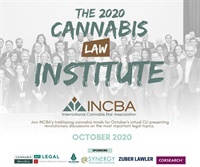
- Average Rating:
- Not yet rated
- Categories:
- Business of Law | CLI 2020 | Webinar with CLE credit
- Faculty:
- Amy McDougal | Nanette Heide | Regina Unegovsky | Jeffrey Merk
- Duration:
- 1 Hour 4 Minutes
- Format:
- Audio and Video
- SKU:
- INCBA100620TH1
- License:
- Short Description:
- Join us for a discussion of the most important aspects of corporate governance, and how we can learn from some of the high profile failures in the industry.
- Price:
- $30.00 - $75.00
- Average Rating:
- Not yet rated
- Categories:
- Business of Law | Cannabis | Webinar with CLE credit
- Faculty:
- Lauren Rudick | Brandon Wyatt | Jennifer Fisher | Lorenzo Lisi
- Duration:
- 1 Hour 3 Minutes
- Format:
- Audio and Video
- SKU:
- INCBA100620HU
- License:
- Short Description:
- Attend this panel and you’ll be more prepared to address the most important resource we have in the cannabis industry: human capital.
- Price:
- $30.00 - $75.00
- Average Rating:
- 6
- Bundle:
- INCBA’s Cannabis Law Crash Course Bundle
- Categories:
- Business of Law | Cannabis | Webinar with CLE credit | Business
- Faculty:
- Samantha Gleit | Tahira Rehmatullah, President | Nicholas Vita
- Duration:
- 1 Hour 3 Minutes
- Format:
- Audio and Video
- SKU:
- INCBA100620TH2
- License:
- Short Description:
- Join us to take a look at how the changing landscape has changed the identity of money flowing into the industry.
- Price:
- $30.00 - $75.00
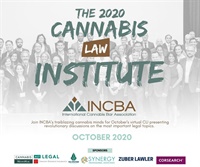
- Average Rating:
- 6
- Categories:
- Business of Law | Cannabis | CLI 2020 | Webinar with CLE credit | Business
- Faculty:
- David Feldman | Matthew Kittay | Emily Paxhia | Christopher J. Davis
- Duration:
- 1 Hour 4 Minutes
- Format:
- Audio and Video
- SKU:
- INCBA100620ME
- License:
- Short Description:
- This panel will discuss the most relevant issues within this area and the best practices applied by leading practitioners in this field. The panel will provide an overview of financing opportunities and methods, timing for investments and other financing vehicles, and positioning your clients for responsible growth.
- Price:
- $30.00 - $75.00

Product Type
Please wait ...
